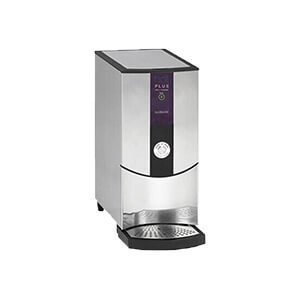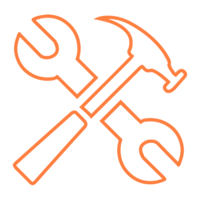IMPORTANT UPDATE: We are now on our journey to becoming Culligan (UK) Ltd. Click here to read our FAQ’s and find out what this means for you.
Read moreRead lessWater boilers vs your office kettle

What office or workplace can survive without hot, boiling water? With some colleagues professing nothing can be achieved unless filled to the brim with coffee or tea, the kettle in all workplace settings takes a bashing on a daily basis. However, there are a few downsides to the kettle that make it's perhaps not best suited to such an environment.
Domestic or Commercial?
In all honesty, the kettle, also known as a teakettle, is an electrical appliance that brings harmony and boiling water to many a household across the UK. In effect, its invention was to solve an issue: the provision of boiling water on a small scale basis.
However, its very convenience in the home has meant that many have taken the humble kettle into the realm that it was not meant for – the workplace.
It can just about stand up to its task, but it will falter and fail quicker than under ordinary use. So, the first ‘con’ that the kettle faces is that it is not quite up to the bashing that it could take in a workplace.
There are some other issues besides that means the humble kettle – frequently, 1.7 litres capacity or 6 mugs of hot water – isn’t quite cut out for a commercial life:
- Cost – it may not seem a lot, but the average full kettle will cost around 2.5p to 3p a time to boiling. However, if you have more than six people wanting a hot drink, that may mean multiple boils of the same kettle, hence very quickly the costs can mount. Bear in mind that the cost of electricity goes up on an annual basis (or so it seems), this 2.5p could be a very conservative estimate indeed.
- Time – it takes a fair few minutes to heat cold water to boiling point and thus, someone may be on duty to boil it several times over. What this means is that break time or lunch time kettle runs can extend and over-run.
- Capacity – there is also something about making the tea or coffee that is not popular and so, there can be groups of people who claim siege to the kettle, boil it and use ‘their’ water for ‘their’ hot drinks. This state of affairs can be a diplomatic nightmare and lo and behold the poor office junior who takes aim at the kettle, pinching hot water that was not meant for them.
- They just don’t have it in them – a kettle is a relatively straightforward bit of kit, with a heating element usually in the base. Surveys of how often we replace small kitchen appliances is topped by the kettle, probably because even in a domestic situation it undergoes heavy use. In the workplace, it doesn’t stand a chance.
The water boiler as an alternative
The water boiler is legendary in being able to offer boiling water at the touch of a button or lever. Switched on at the start of a busy day, and flicked off into its nightly retirement every evening, the water boiler is fast becoming the friend of the workplace.
There are all kinds of pros with investing in water boilers for the workplace:
- Capacity – the water boiler is capable of heating larger quantities of water in a far more efficient way and, depending on the size of the unit in terms of litres of water, will certainly fill more than the six mugs that one kettle full will manage.
- Ease of use – it really couldn’t be simpler. Place tea bag or a spoonful of coffee in any size mug or cup, put an empty mug under the tap, depress button or lever and fill the mug with desired quantity of hot water. The next person does the same, and the next and so on.
- Time-friendly – there is no waiting and no laying siege to the hot water in the kettle. Break and lunch times can be harmonious times once more, without warfare or diplomatic skirmishes breaking out over the freshly boiled kettle.
- Space-efficient – as you would expect, the modern day water boiler is not quite the gargantuan, wall-filling appliance that it once was of old. Compact and bijou in design, modern day water boilers benefit from smaller, but more efficient elements and components, hence they take up far less room than a row of boiling kettles.
- Cost-effective – instead of replacing the kettle so many times a year after wearing the element out, why not invest in an efficient water boiler instead? It will cos far less to boil water and keep it heated than it would boiling a full kettle so many times in a day.
We hope you're a little clearer on the water boilers vs your office kettle debate.
Whether you have a large workforce, streams of visitors or not, the water heater can be a welcome, efficient edition to the workplace. Get in touch today and see how we can help you replace your kettle and save you lots of wasted man hours.







